Most likely, your dog’s jobs include lying on the sofa, getting pets, and barking at the neighbors. But in the past, they may well have had an important place in working society. We often split dogs into categories based on which particular duties they performed, like the herding or working breed groups. Hunting dogs, however, stand out as their own unique set of dogs, and the breeds that fall under this umbrella might span a few different types. Whether you want a hunting companion or just love these dogs for their refined characteristics, here are the best hunting dogs.
Types of hunting dogs
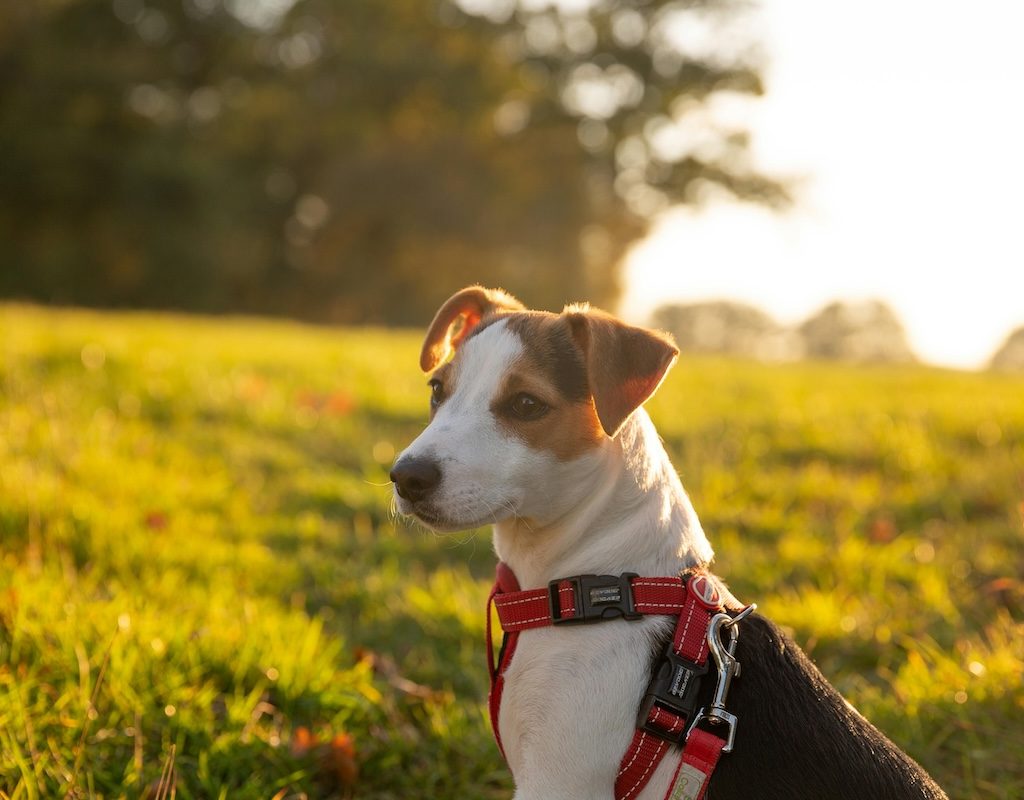
Hunting different animals requires different traits, so we must further break down the little predators.
Bird dogs
These guys hunt with their people and include pointers and retrievers. While pointers point with their noses, retrievers fetch and bring back the prey. Lastly, flushers get birds to fly out, so they they’re easier to find.
Hounds
You likely know what a hound looks like as this class of pup holds a strong place in our hearts. Broken down into two subgroups, scent and sight, hounds do the hunting on behalf of their owners by tracking or spotting their prey.
Curs
Beloved to early Americans, these beasties learned a technique called “treeing,” where they would back the prey, usually a raccoon, into a tree for easy grabbing.
Terriers
Once these guys are off on the hunt, you might miss them entirely because their chase often takes them underground in search of rats and foxes.
Best dogs for hunting

Now that you know how these various types of dogs hunt, you can narrow your selection to a specific breed.
Labrador retriever
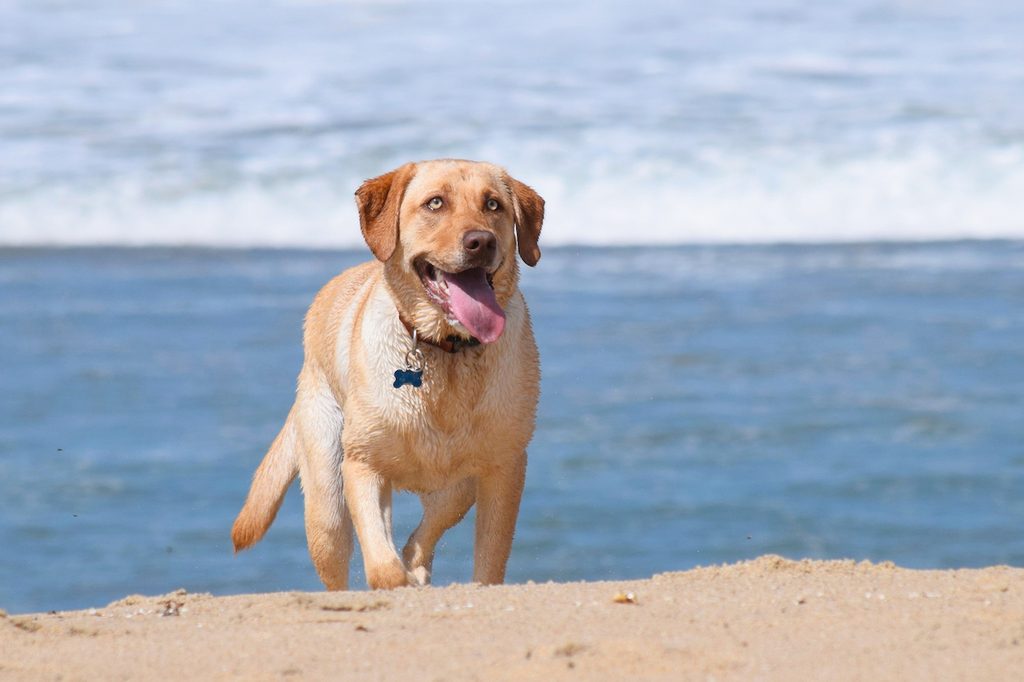
These buddies are absolute pros at, you guessed it, retrieving. Once upon a time, this meant getting a bird to bring back, though now it can extend to your pooch’s favorite toy as well. Still, if you plan to go on a traditional pheasant hunt, you’ll want to have your (well-trained) Lab with you.
Golden retriever

Another one for the retriever category, Goldens love the water — for hunting or for a playful afternoon. Many owners recommend this breed for their intelligence, family-oriented nature, and eagerness to please. All good categories when hunting waterfowl, too.
German shorthaired pointer

Not to be confused with other pointers, like the English variety, this pup has become all the rage recently when they shot up in pup-ularity over the last decade, according to the American Kennel Club’s data. Keep in mind, even if you don’t intend to take them on a traditional hunt, you’ll need to find a way to get out their abundant energy.
Bloodhound
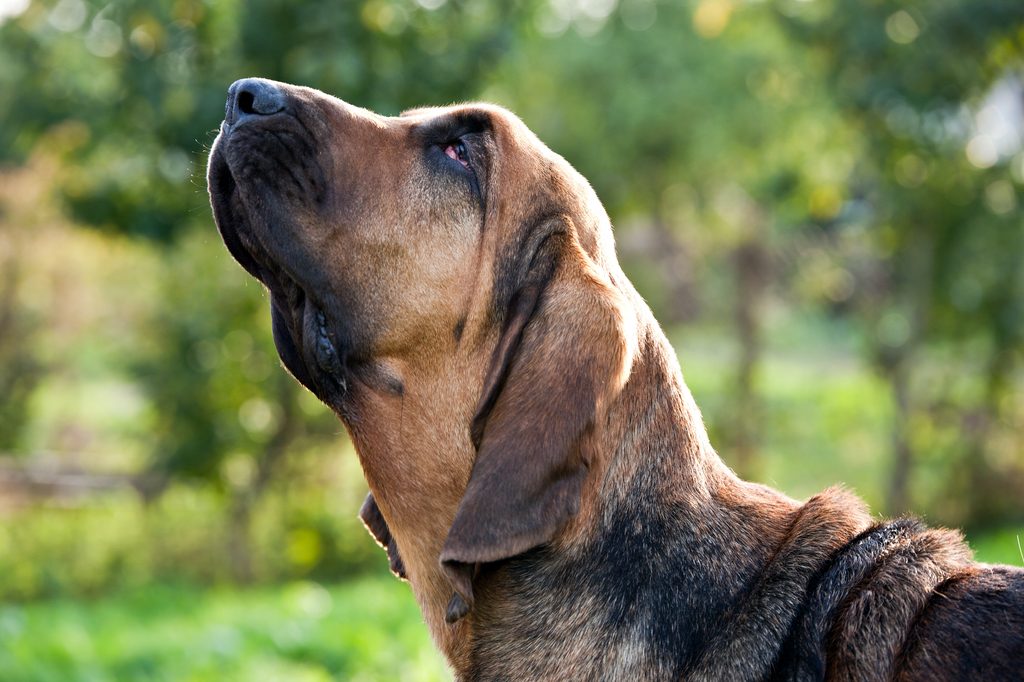
These dogs can track their prey over 100 miles. You read that right. Bloodhound’s sniffers guide them remarkably well, and their brains keep them hot on the trail. Of course, that also means you have to keep them safe and secure at home, less they wander off in search of prey or pizza.
Beagle
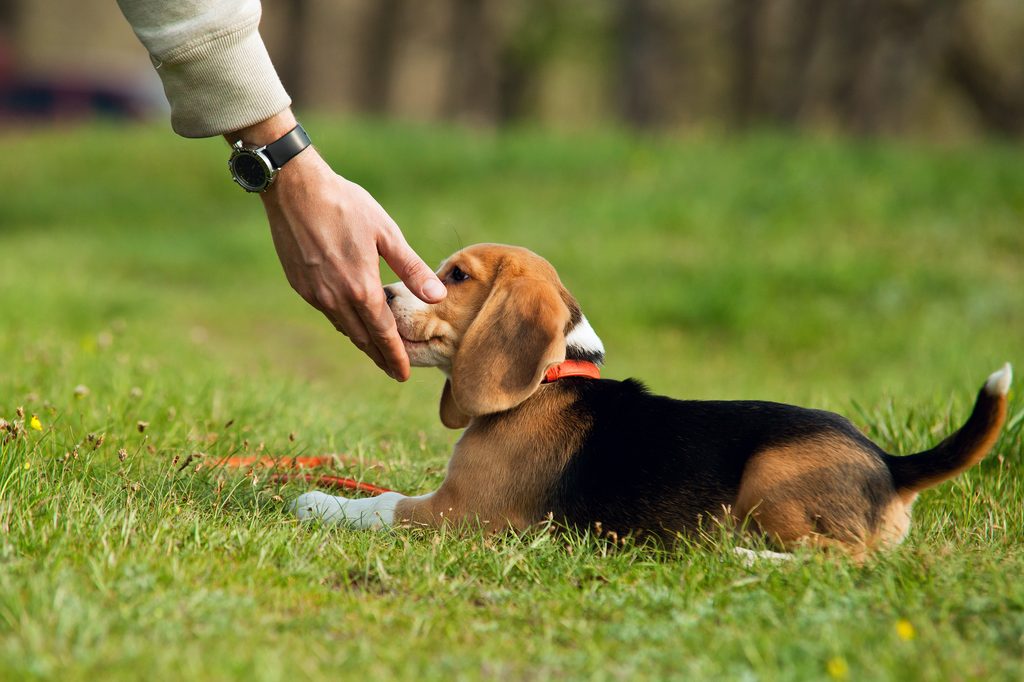
Beagles make great hunters that traditionally gave chase in a pack. Therefore, they love families since it’s natural for them to live in a large group. Keep in mind, some Beagles howl or even bay. A lot. Invest in early training so your pet knows when to keep quiet.
Cocker spaniel
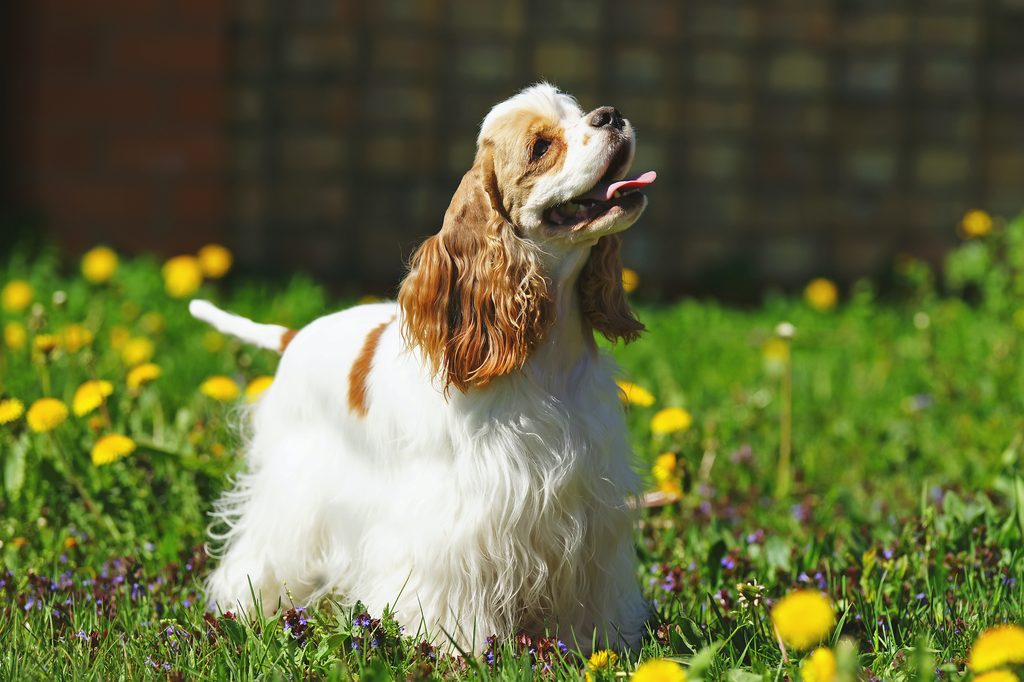
So named because they enjoy chasing woodcocks, these pups have an amazing sense of smell and love to stalk birds. However, don’t worry about this too much if you just want a snuggly guy who stays home — they love that, too!
Irish setter
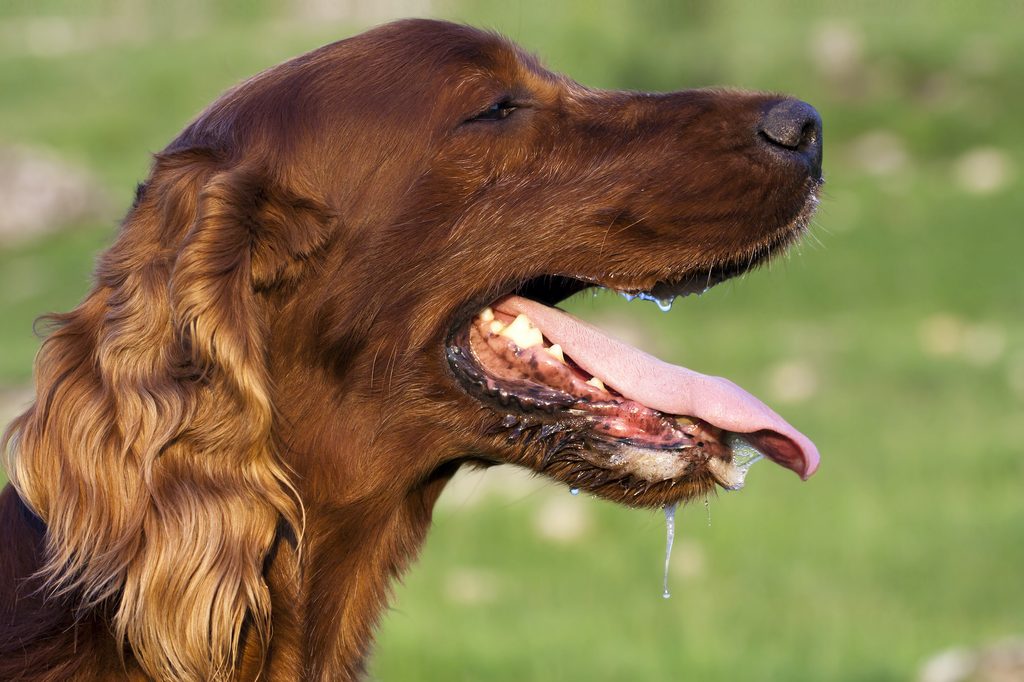
You would spot these beauties from a mile away, as the shocking red fur gives them a stand-out feature. They also have an interesting hunting method (similar to the English setter) where they “set” or squat down on their tummies. Like so many of these hunting breeds, they need a good amount of exercise.
Closing thoughts
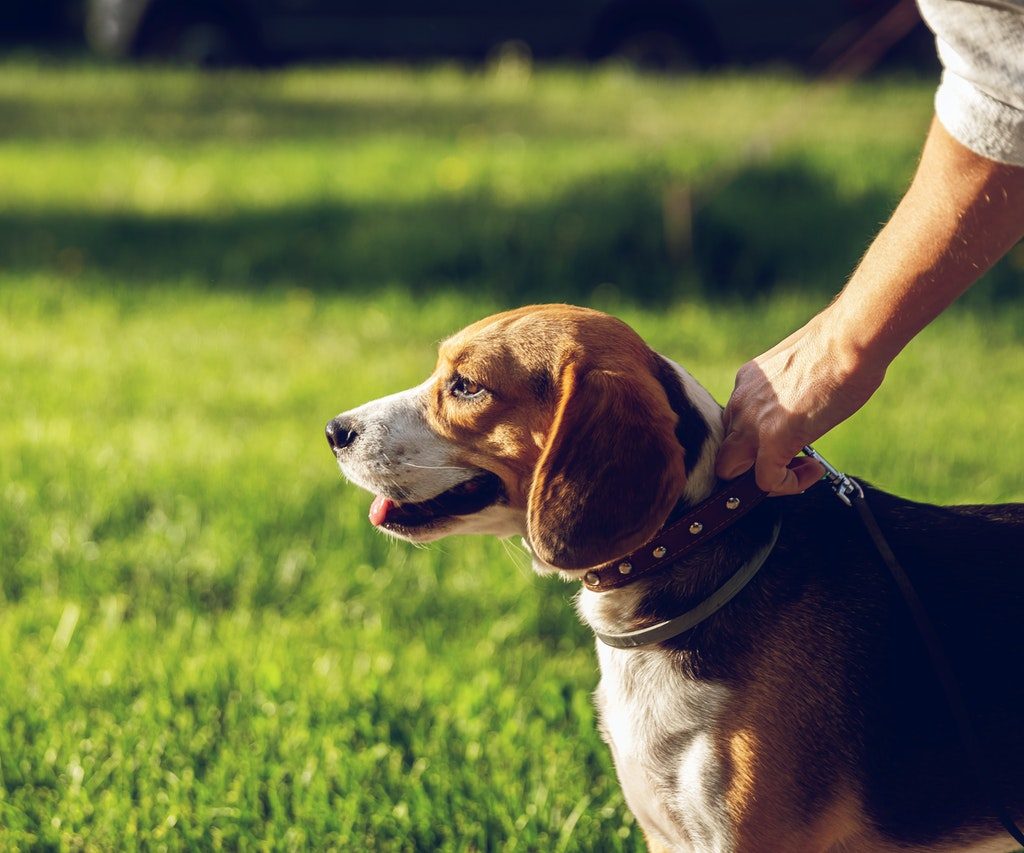
If you do decide to bring home a hunter, make sure to spend a lot of time on training, regardless of whether you intend to take him out on excursions with you. On the hunting trail, you should follow a few extra rules to keep everyone safe, including getting them used to gunfire, adorning them in a brightly colored vest, and having them microchipped.
While out there, bring first-aid supplies and food for both of you (water ,of course, as well). For buddies who prefer to stay inside, remember to provide ample exercise, training, and playtime. Even if they aren’t hunting literally, they’ll love to show off their skills chasing a squeaky toy.




